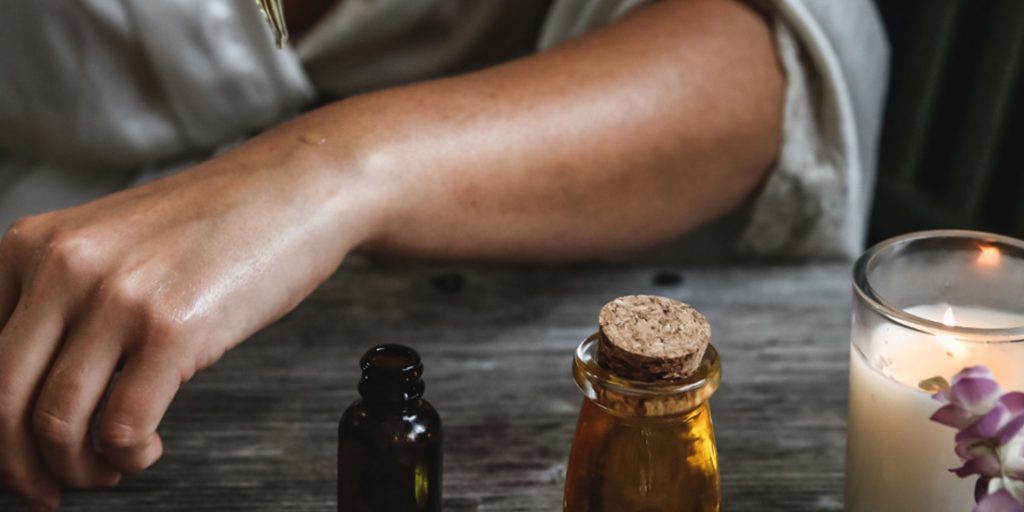There’s nothing we love more than visiting our stockists, so we took a little trip over to Winchester recently and […]




There’s nothing we love more than visiting our stockists, so we took a little trip over to Winchester recently and […]
This week we launched the newest Ellis Brooklyn scent SUN FRUIT here in the UK with a gorgeous evening at […]
Newcomer to the Tunbridge Wells High Street, Luxe Vida is a chic boutique bursting with gifts, goodies and inspo, all […]
If you’re passing the windows of Liberty’s beauty department in the next 2 weeks, you’ll be hit with the ingenious […]
“There’s only one very good life and that’s the life you know you want and you make it yourself.” – […]
There’s been a few notable launches from niche fragrance brands of late, so come and learn more about the goodies […]
How are you feeling right now? Perhaps you’re calm or maybe you’re irritated after a tough day? Now take a […]
Molecular perfumery isn’t a new concept, any niche fragrance connoisseur out there will have heard of it. A modern trend […]
As the days grow shorter and the weather starts to turn, you’re likely finding yourself reaching for scents you already […]
Eco-friendly – DING! Non-toxic – DING! Sustainable DING! What business doesn’t have these buzzwords on their mind right now? The […]
Quirky niche fume brand D.S. & Durga recently launched a video campaign celebrating their #1 global best seller I DON’T […]
‘It has been said, with some justice, that the world was discovered in perfume’s wake’ – Mandy Aftel, Essence & […]
An isolated jewel in the Mediterranean, the island of Capri harbours an ancient history as graceful as the fragrance brand […]
Last month we launched our newest fragrance brand Ellis Brooklyn at Harrods Beauty stores. The already established store at Lakeside […]
Sexy and bold. Elegant, and most decidedly present. That’s Photogenics+Co Scroll on down to keep reading, as we shine a […]
If you read our blog about the effects of the pandemic on the fragrance industry (You missed it? Find it here) […]
Cosy up and listen in, because we’ve got a story to tell. You might have spotted the name Ellis Brooklyn […]
Covid-19 has got a lot to answer for, wouldn’t you say? No one would have thought a year ago we’d […]
The fragrance world is rooted in history as far back as the late 1300s. It’s evolved through the ages, as […]
At the start of this month, we were graced with the presence of another of D.S. & Durga’s illustrious fragrance […]
‘The power of scent is equal to that of sight and sound’ – D.S. & Durga As we write this, […]
‘Perfume is armchair travel’ This tagline is the backbone supporting every fully formed fragrance and every new olfactory idea from […]
Last week’s blog was all about the joyous new scent from Abel, Cyan Nori. But we want to shine the […]
Originally formed in Amsterdam, natural fragrance brand Abel have recently moved across the world to New Zealand, where they now […]
We like to think of ourselves as the custodians of niche, here at Luxe Associates. The brands we work with […]
Liberty. London’s emporium of pioneering design, beautiful merchandise and unexpected edits from the world’s greatest brands, brought to the public […]
Us lovely lot here at Luxe HQ recently teamed up with Liberty London and niche fragrance house DS & Durga, […]
On 24th October, we wholeheartedly welcomed the first Indie Beauty Expo to the UK. Born in New York City, the […]
Earlier this month we hopped across to the emerald isle to witness the launch of new and intriguing skincare brand […]
Since it’s unveiling, Harrods Salon de Parfums has been the go-to destination for some of the world’s most expensive and […]
If the joy brought to you through Carthusia’s fragrance for skin isn’t enough, you’ll be delighted to learn they’ve recently […]
A brand which draws its history and inspiration from the tiny Italian island of Capri, we introduced Carthusia to the […]
With a global approach to curating their distinct scents, IDEO Parfumeurs’ founders Ludmila and Antoine Bitar are masters of telling […]
Did you know Luxe Associates have four of our brands as part of the beautiful men’s department at Fortnum & […]
We are happy to announce that the new Carthusia colour collection, Acqua di Carthusia, has officially launched at Fenwicks in […]
With the festive season upon us now is the perfect opportunity to pay Liberty of London’s fragrance department a visit. […]
Feeling Festive yet? Luxe Associates are excited to introduce the LINARI Albero Di Natale Christmas Tree This contemporary Christmas tree […]
AVE MariaL – New Fragrances Launched at Liberty Luxe Associates are excited to introduce two new fragrances from MariaL, which […]
In the early twentieth century, in a room on the upper floor of the family chateau, the son of a […]
Steven Victor MD Miraculous Skincare Steven Victor MD is a luxurious range that aims to reinvent the skincare regime. Victor […]
PittiFragranze Florence Last weekend, 12-14th September, Luxe Associates attended the 12th Pitti Fragranze in Florence – the international fragrance event, […]
The Luxe Associates and LINARI teams have had another successful show at Maison & Objet, where we celebrated the launch […]
As Harrods celebrates the anniversary of its Luxury Living department, we thought we would take some time out to highlight […]
Fancy winning a bottle of Ulrich Lang New York’s newest fragrance Aperture, with the chance for your photography to be […]
After centuries of splendid isolation, the most seductive perfumes in the Mediterranean have reached the shores of the continent In […]
We would like to thank Dario Torre and Stafania Bartolotti from the Profumi del Forte team, who recently travelled all […]
You may have noticed we have recently joined Facebook! If you are not yet a fan (why ever not?) then […]
Walking along the beach on the northern part of the beautiful island of New Zealand, perfumer Mark Buxton was taken […]
We have some very exciting news to share with you all! Aedes de Venustas won “Fragrance Extraordinaire” at the Fragrance […]
Last night we attended the launch of luxury Italian fashion brand Marina Rinaldi’s new Mayfair flagship atelier A good time […]